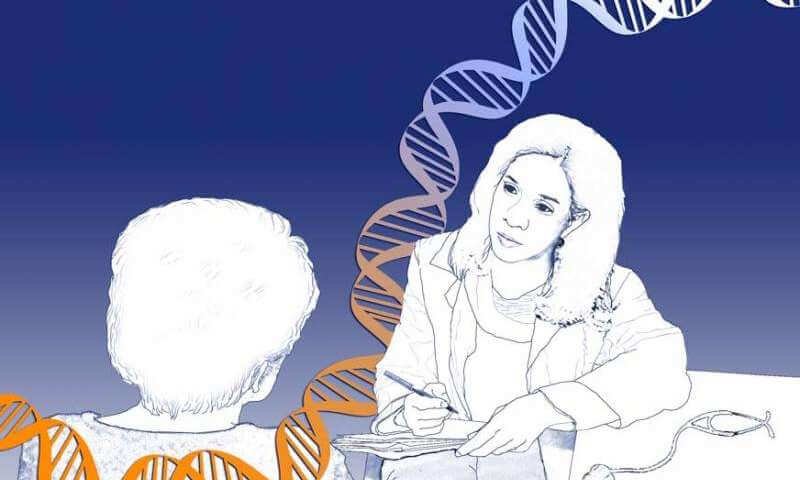In this episode of Genetics Unzipped, recorded at the recent Festival of Genomics in London, Kat Arney finds out why it’s so important to make sure that both academic and commercial research studies are done with rather than on participants.
Research into genetic conditions relies on information from patients and their families, whether that’s detailed health records or genomic data. As the tools and techniques for DNA and data analysis become cheaper and more organisations get in on this fast-growing field, it’s vital to make sure that the most valuable research resource – human lives – doesn’t get overlooked in the rush.
Fiona Copeland is the chair of a support group for UK families affected by primary ciliary dyskinesia or PCD – a rare genetic condition that affects the lungs – and is the mother of two adult sons with the condition. She’s spent many years acting as a patient representative, engaging with academic and industry scientists looking to involve PCD patients in research into understanding and treating the condition. She explains what her role involves and shares her advice for how researchers can engage and involve patient groups more effectively. Her top tip? Don’t make children cry!
Next Arney speaks with Patrick Short. He’s the CEO of Sano Genetics – a Cambridge-based startup that aims to connect researchers with patients who want to take part in genomic research. While some companies using patients in research have come under scrutiny for poor handling of data and ethical compliance, Short is keen to help organizations do better and drive change in the fast-growing commercial genomics sector.
Finally, we hear from Shelley Simmonds, a disability rights campaigner and rare disease advocate whose son Fraser was initially given a diagnosis of Duchenne Muscular Dystrophy as a baby. When Fraser didn’t seem to be progressing as might be expected for a child with the disease, she and her family got involved in Genomics England’s 100,000 Genomes Project in search of clarity – but things turned out not to be quite so simple. Shelley talks what happens when the question “What’s wrong with my child?” has no answer.
Full transcript, links and references available online at GeneticsUnzipped.com
Genetics Unzipped is the podcast from the UK Genetics Society, presented by award-winning science communicator and biologist Kat Arney and produced by First Create the Media. Follow Kat on Twitter @Kat_Arney, Genetics Unzipped @geneticsunzip, and the Genetics Society at @GenSocUK
Listen to Genetics Unzipped on Apple Podcasts (iTunes) Google Play, Spotify, or wherever you get your podcasts































